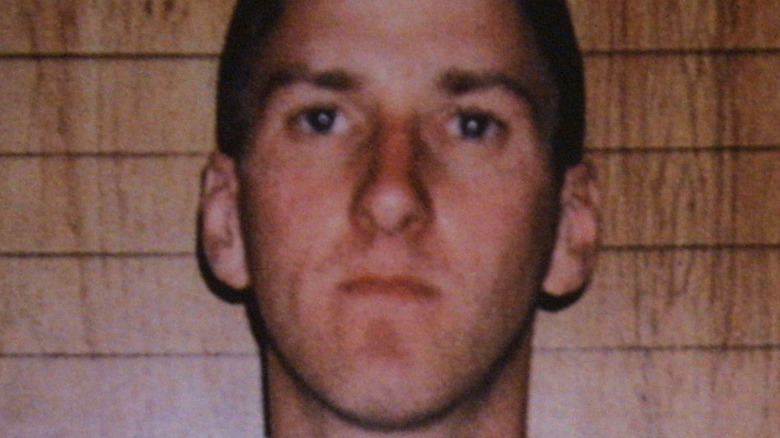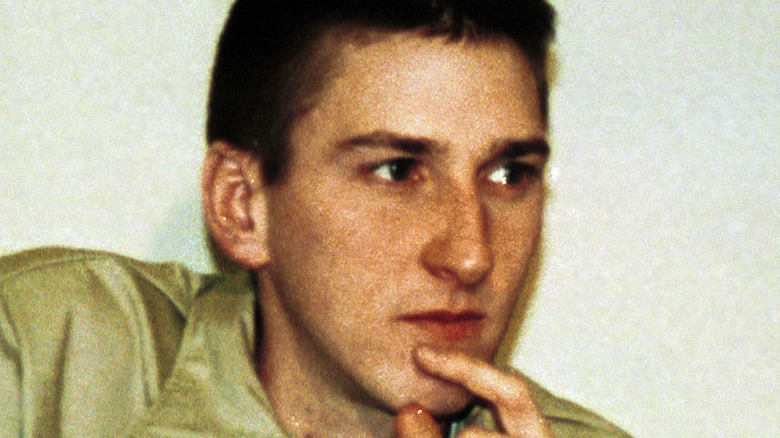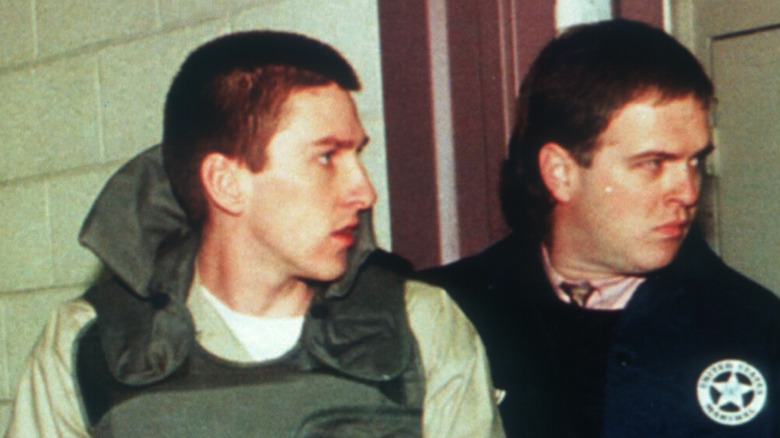What Timothy McVeigh's Weapons Obsession Reveals About The OKC Bombing Tragedy
On April 19, 1995, a truck exploded in front of the Alfred P. Murrah Federal Building in Oklahoma City, Oklahoma, as History explains. The blast killed 168 people, and many more were injured. It was the deadliest act of domestic terrorism — perpetrated by American citizens — in U.S. history, according to the official FBI website. Timothy McVeigh carried out the attack with accomplices Terry Nichols and Michael Fortier, who knew of the plot but failed to alert the authorities. All three men served time in jail, and the mastermind, McVeigh, a former U.S. Army soldier, was later executed.
Signs that Timothy McVeigh could be capable of such an act were there from the start, from an unhappy childhood filled with bullying and an early obsession with guns to distrusting the federal government based on his tour of duty in the Persian Gulf. By connecting such dots sooner, future tragedies, like what happened in Oklahoma, might be averted.
Teenage McVeigh loved guns
Timothy McVeigh was born in New York state in the late`60s, per Britannica. Like many from his generation, McVeigh's parents divorced when he was 10, and as a boy, he was lonely, according to The Washington Post. Around that same time, and despite the fact that McVeigh's dad, Bill McVeigh — whom Timothy lived with — had little interest, young Timothy McVeigh took up an interest in hunting and guns. From that point forward, McVeigh practiced target shooting and began to collect weapons.
By age 14, McVeigh's obsession with guns translated into a preoccupation with survivalism, anti-communist sentiment, and American patriotism. He was also bullied during this period. After high school, McVeigh drifted through the economic downturn that wiped out industrial centers near his hometown. Around this same time, racial tension also sprang up for McVeigh. After working odd jobs — and with few other options — McVeigh joined the army, just like his father had done.
McVeigh likely experienced PTSD
In the years leading up to Timothy McVeigh's attack in Oklahoma, two major confrontations occurred between federal agents and survivalist and right-wing extremists in Idaho — in the case of Randy Weaver and his family — and in Waco, Texas, with David Koresh and his Branch Davidian religious sect. People were killed by federal agents in both incidents, which only worsened McVeigh's anti-government sentiment. McVeigh also grew increasingly alarmed at what were, in his view, examples of government overreach relating to gun control and a perceived communist threat in America, per BBC.
At this point, though, McVeigh had been out of the army for some years, discharged in 1991, per The Washington Post. All combined, the real tipping point in McVeigh's background probably came from his military experience in Iraq during the Persian Gulf War. While in Iraq, McVeigh — a sharpshooter and sergeant — killed Iraqi soldiers, and those killings likely took a toll on McVeigh's mental health. For this reason, McVeigh was most likely living with post-traumatic stress disorder (PTSD) when he planned and carried out the bombings in Oklahoma, for which he would later be executed (via BBC).
If you or someone you know is struggling with mental health, please contact the Crisis Text Line by texting HOME to 741741, call the National Alliance on Mental Illness helpline at 1-800-950-NAMI (6264), or visit the National Institute of Mental Health website.


